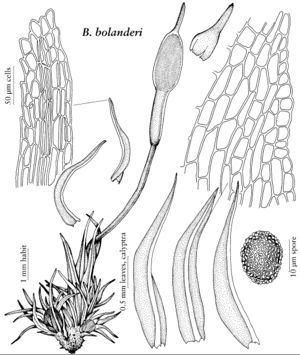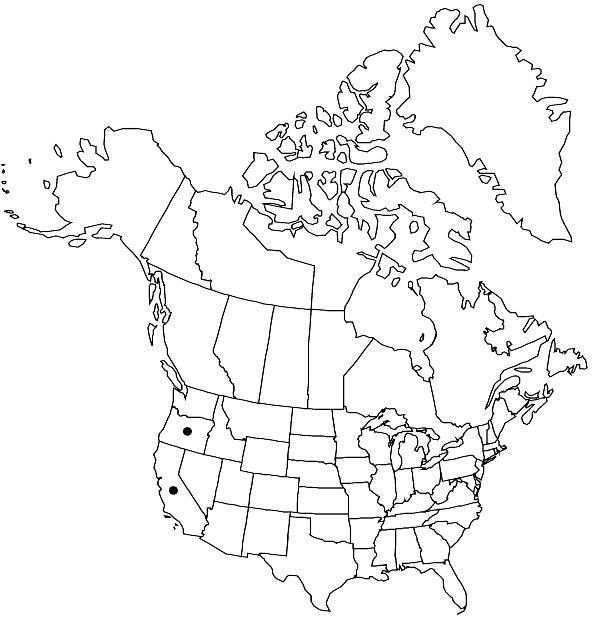Difference between revisions of "Bruchia bolanderi"
Mem. Calif. Acad. Sci. 1: 5. 1868,.
FNA>Volume Importer |
imported>Volume Importer |
||
| (One intermediate revision by the same user not shown) | |||
| Line 45: | Line 45: | ||
|publication year= | |publication year= | ||
|special status= | |special status= | ||
| − | |source xml=https:// | + | |source xml=https://bitbucket.org/aafc-mbb/fna-data-curation/src/2e0870ddd59836b60bcf96646a41e87ea5a5943a/coarse_grained_fna_xml/V27/V27_618.xml |
|genus=Bruchia | |genus=Bruchia | ||
|species=Bruchia bolanderi | |species=Bruchia bolanderi | ||
Latest revision as of 22:27, 5 November 2020
Distal leaves lanceolate to long-lanceolate or subulate, 0.7–3 mm, leaf base ovate to oblong; distal laminal cells long-rectangular. Sexual condition autoicous. Seta 1.5–5.5 mm. Capsule neck long-tapering and nearly cylindric. Spores warty (irregularly papillose in groups). Calyptra smooth.
Phenology: Capsules mature summer.
Habitat: Soil
Elevation: moderate to high elevations
Discussion
Bruchia bolanderi has an elongate capsule neck that is reminiscent of that of Trematodon, but the capsule is cleistocarpic. Unlike in other species of the genus, the capsules of both B. bolanderi and B. vogesiaca have a weak but not functioning line of dehiscence where a capsule mouth might be.
Selected References
None.
Lower Taxa
None.

